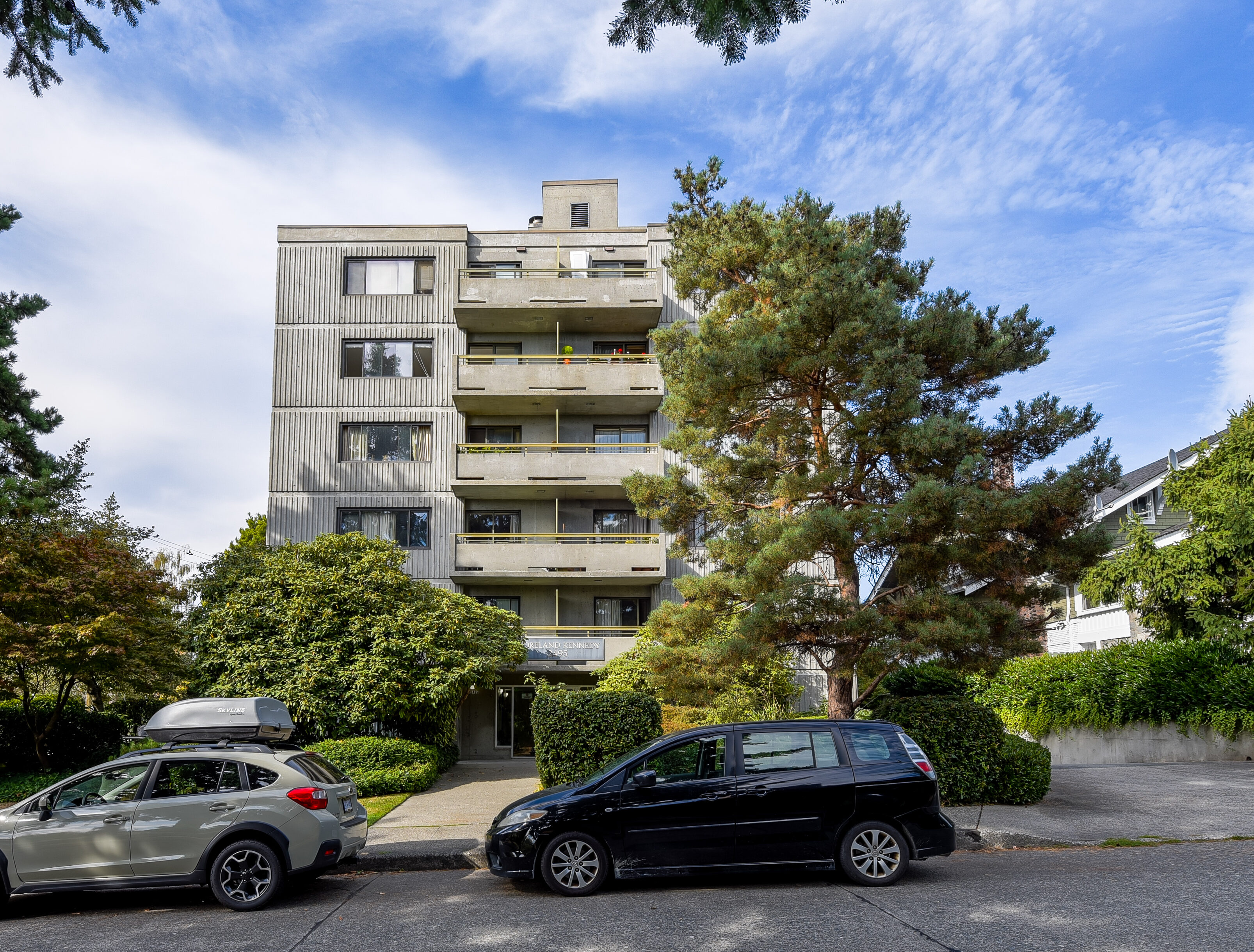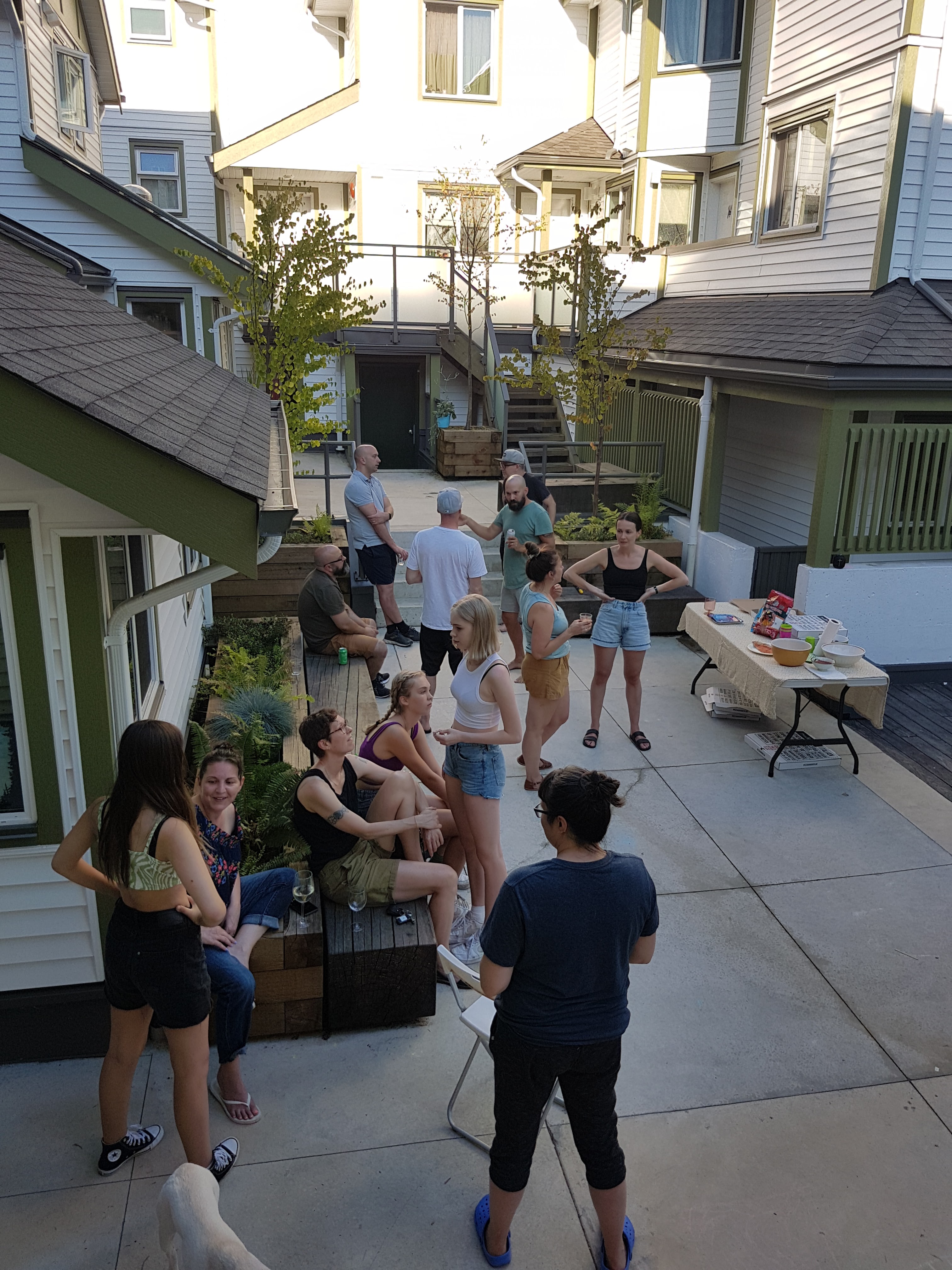VANCITY Nonprofit Housing Retrofit Grants Open the Door to Affordable Net Zero Housing
Projects Sponsor
Several studies have shown that Vancouver and the surrounding municipalities are among the least affordable places to live in the world. Publicly supported affordable housing offers much-needed homes for the most vulnerable in BC, and many of these buildings are managed by non-profit housing organizations. Currently, BC’s vital non-profit housing stock requires major re-investment to address a maintenance deficit estimated to total $1.25 billion over ten years, up to 2027. These issues have only been made worse by increasing climate-related events, including rising temperatures and flood and fire risks, all of which make it even more difficult for non-profit home providers to keep their residents safe and comfortable in their homes. That’s where Vancity stepped in to help these non-profits help those in need.
Vancity’s Nonprofit Housing Retrofit grants program aims to address some of these challenges by improving energy efficiency, reducing carbon emissions, and boosting the overall sustainability of the province’s affordable housing stock.
Achieving those aims isn’t as simple as just handing out money. Vancity conducted extensive secondary and primary research with their non-profit housing members, other providers, and home energy consulting companies. They also completed a landscape review of existing programs to understand the barriers faced by those undertaking retrofits of non-profit housing stock and what support would best complement those programs.
While it is often assumed that a key barrier is access to capital for energy retrofits, numerous funding programs exist to offset the costs of retrofits. However, Vancity’s research showed that other issues, such as capacity building amongst staff and governors of non-profit housing associations, are also real hurdles to overcome. Another easy-to-miss challenge is the fact that the process for planning and carrying out a retrofit project can be cumbersome and complex, making it difficult to access those incentives that already exist.

After completing this research, Vancity turned to developing the structure of the program and set out to provide $5 million in grants to help non-profit housing providers and housing co-operatives to take on deep energy retrofits. They began by offering grants based on the project planning phase to non-profit housing providers, and by providing grants to strengthen climate action in the overall non-profit housing sector.
Non-profit housing providers and First Nations among Vancity members are eligible to apply for planning grants (up to $80,000) and capital and implementation support grants of up to $99,000, with more available for larger building portfolios. Vancity encourages grant recipients to combine these grants with other sources of funding and has designed the program to complement existing government support.
The key objective is to help non-profit housing providers and housing co-operatives put their buildings on a pathway to net-zero and climate resilience. Go far enough along that pathway and we’ll have buildings that emit no greenhouse gases and are better able to withstand the negative effects of a changing climate, protecting our planet and the health and comfort of occupants.
Armed with an understanding of the problem, the work already being done to address it, and a plan to fill some very critical gaps, Vancity rolled up their sleeves.
They started with a focus on non-profit housing providers who were members of the BC Non-Profit Housing Association (BCNPHA), Aboriginal Housing Management Association (AHMA), and Cooperative Housing Federation of BC (CHFBC). To roll out the Program, Vancity also funded strategic partnerships with these organizations, supporting initiatives like training curricula for housing providers, capacity building, and benchmarking energy data. They also provided funding for Affine Climate Solutions to provide free consulting services to non-profit housing members participating in a pilot to model best practices in integrating building retrofits into portfolio and capital planning.
More recently the program expanded to work directly with First Nations to support retrofits of housing stock on First Nation lands.
So far, this program has directly supported retrofits and retrofit planning for 253 buildings. Within these buildings, 332 units of non-profit affordable housing have benefitted from capital and implementation funding and 421 units of affordable housing have been supported in the planning stages for deep retrofits.
Planning grants support Vancity members as they plan for deep energy and carbon retrofit projects. These funds can be used for portfolio planning, feasibility and building energy studies, energy modelling, added organization capacity to support retrofit planning, and other projects that support a pathway to net-zero and climate resilience.
Beyond the planning stage, capital grants support Vancity members who undertake retrofit projects that will achieve a minimum reduction in greenhouse gas emissions of 30% and move a building along a pathway toward net-zero emissions. Grants can be used to cover everything from equipment, labour and engineering to electrical capacity upgrades, project management and commissioning, or even training for building management staff.
Together, a whopping 753 households have been supported in their transition to climate-safe housing. To date, the program has disbursed $2.2M in grants to support housing co-ops, non-profit housing providers and First Nations to move their buildings toward net-zero GHG emissions and greater climate resilience.
Planning, securing funding for and then finally undertaking a retrofit is a multi-year process and to date, none of the funded projects are fully complete, but Vancity’s projections are already looking bright.

A project supporting the retrofit of a housing co-op is projected to take the co-op’s buildings to net zero GHG emissions, a reduction of 43.9 tons per year, and annual energy cost savings of up to $15,000. The project will provide highly efficient space heating, cooling and hot water, and a new source of renewable solar power to the families and individuals who live there. Another project at a seniors’ housing building is projected to result in electricity cost savings of $9,300 per year, gas cost savings of $16,100 per year and reduce greenhouse gas emissions by 61 tons per year.
Close to half of the organizations supported have mortgages with Vancity, and as projects are completed, they will contribute to progressing action on Vancity’s goal of net zero financed emissions by 2040.
Funding from the program has also played a key role in Brightside Community Homes, a large non-profit housing provider, developing a net zero climate strategy. This strategy is targeting net zero by 2035 with a 37% reduction in scope 1 and 2 emissions by 2027, the majority of which will be enabled by funding from Vancity.
The program has made strong progress towards its goals of delivering emissions reductions, enabling capacity and knowledge building on climate action in the non-profit sector, and supporting climate change adaptation and mitigation for equity-deserving groups. Vancity is committed to reaching its funding goal and opening the door to much-needed climate and human-friendly housing.













